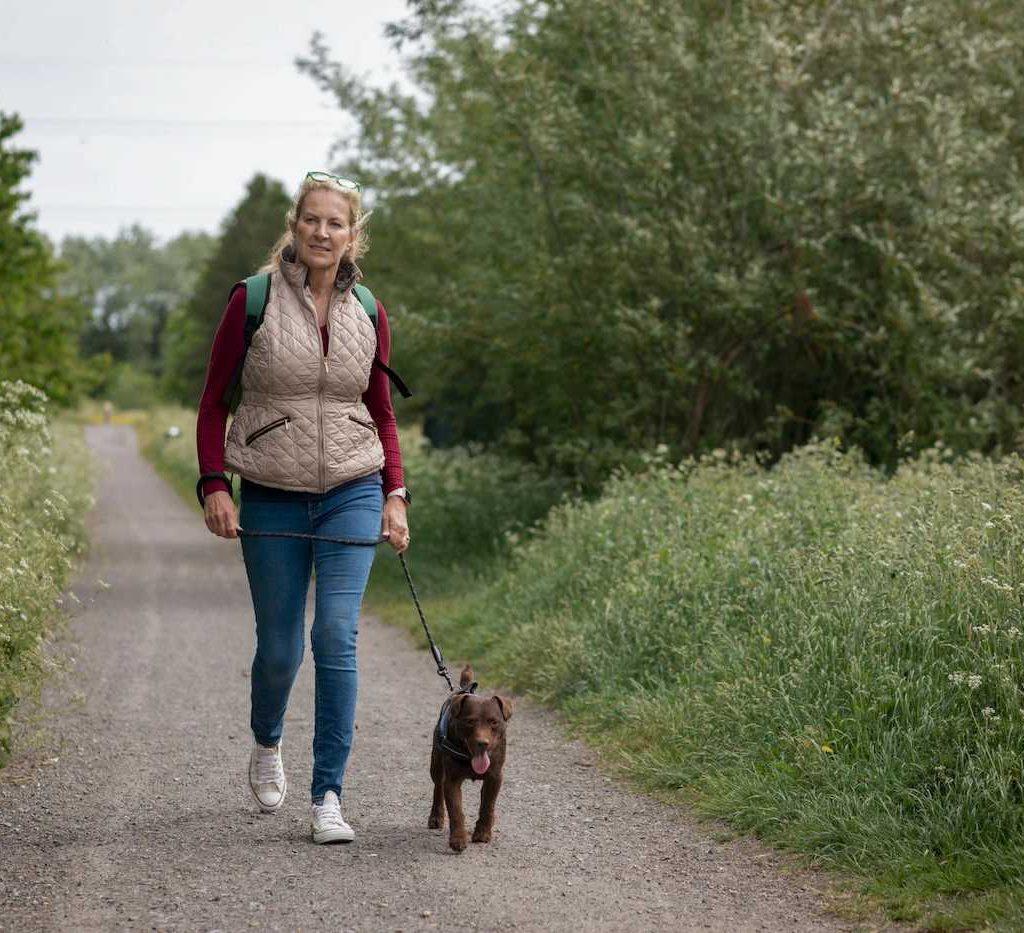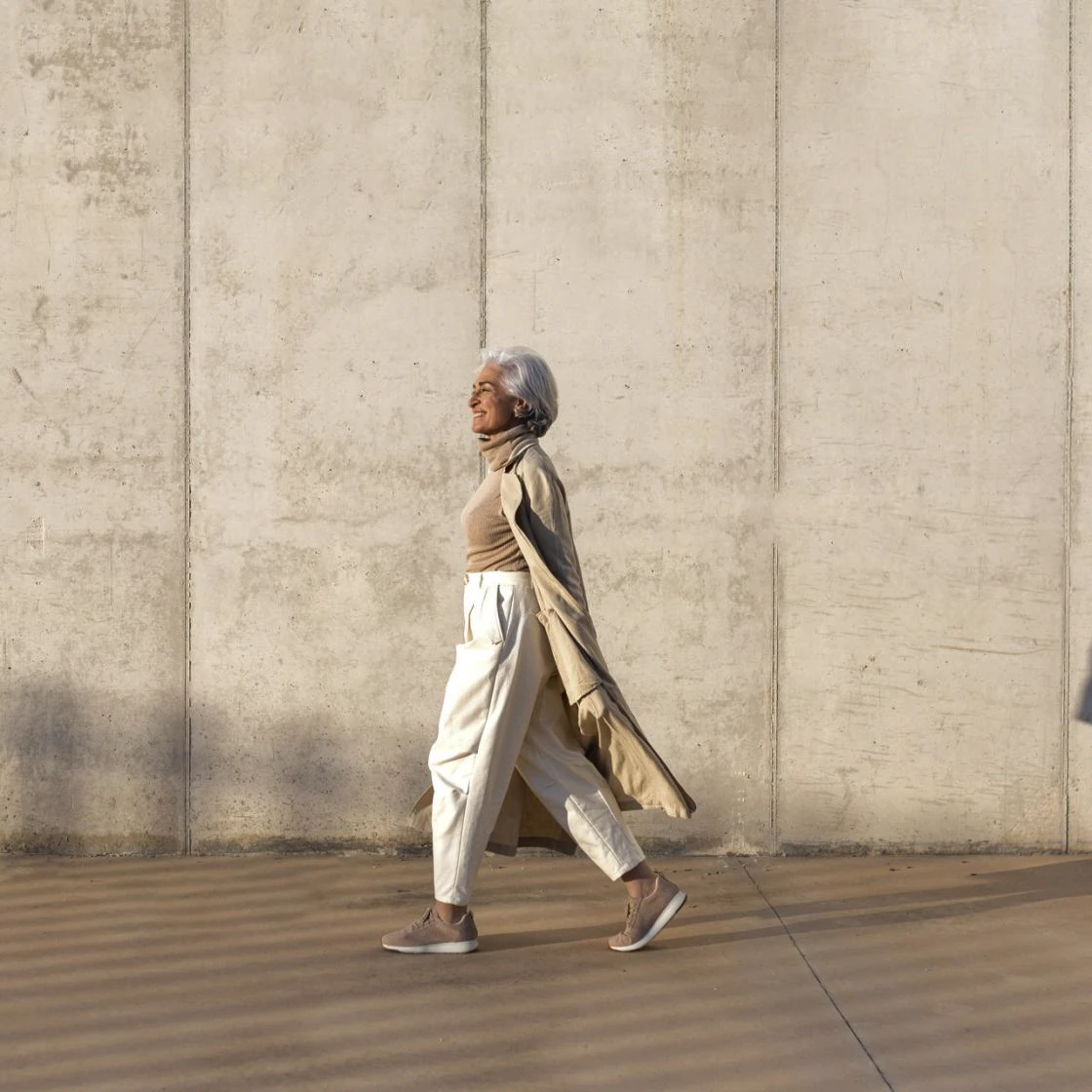Whether you enjoy starting the day with a morning stroll, have jumped on the 12-3-30 TikTok trend or prefer a weekend jaunt with friends, the popularity – and variation – of walking has grown at a rapid speed.
And, while it’s clear why you should walk (benefits include lowering the risk of depressive symptoms and giving your cardiovascular fitness a leg-up), we want to go back to basics and ask, simply: what’s the best way to go about it? Or more specifically, should you do one long walk or multiple short walks in a day?
If you’ve got a pretty steady workload but no kids to run around after, a pre-office or post-work long walk might be the most realistic option. However, if your iCal consists of back-to-back meetings, you may choose to squeeze in shorter, faster walks throughout the day or take some of those calls outside.
Generally speaking, any way you choose to walk will have notable benefits. “Improved heart health, decreased blood pressure, stronger muscles in your legs and back, as well as stronger joints and bones and reduced risk of cardiovascular disease are among the health benefits associated with walking,” says Dr Nicolas Berger, sports and exercise lecturer at Teesside University.
You may also see improved body composition such as increased muscle mass, but walking at a brisk pace with a mixture of inclines and declines is the best way to go about it, he adds.
Long v short walks: what’s the difference?
To begin with, let’s talk about what constitutes a ‘long’ and ‘short’ walk. Berger says a short walk is around the 20-minute mark and a long walk counts as 45 minutes and above. The NHS says adults in the UK should aim for 150 minutes of exercise per week and regular walking is a sure-fire way to help you reach this minimum.
“You could think of that as 30 minutes, five times a week,” suggests Aimee Victoria Long, a celebrity personal trainer. “The exercise you choose doesn’t have to be high impact and intense; it can be as simple as taking a walk. It’s vital to hit that minimum goal for your physical and mental health.”
Benefits of walking, whatever the length
Short walks can build confidence in your fitness level
Everyone has to start from somewhere, so if you can’t manage a 45-minute walk in one go, breaking it up into chunks might be more achievable for you. We know that sitting for long periods of time can have a negative impact on your health. Doing so, Berger points out, can cause a number of issues including “stiffness, rounding of your shoulders, decreased mobility, lack of muscle mass and also increased tiredness”.

According to a study published in the British Journal Of Sports Medicine, a daily 11-minute brisk walk may be a sufficient amount of exercise to lower the risk of diseases such as heart disease, stroke and a number of cancers. Therefore, two or three short walks throughout the day could help to prevent the effects of prolonged sitting.
Struggle with sensitive knees? “Shorter walks are significantly better for your joints and will decrease the likelihood of injury,” says James Bickerstaff, a personal trainer at Origym. That’s because doing a shorter walk at an easier pace isn’t going to put too much strain on your joints. Wearing the correct shoes and a flat terrain will also make it easier to walk with knee pain.

Your heart rate increases with long walks
Aerobic exercises such as dancing, cycling or walking is a great way to increase what’s called your “zone two fitness”. Zone two cardio involves using 65-75% of your maximum heart rate and all zones above that exceed this percentage, which is why running or a spin class, for example, will feel a lot more uncomfortable compared to walking.
Contrary to popular belief, not all cardio workouts need to be hard, so there’s no need to go flat-out every time to see the benefits. Zone two training shouldn’t be too challenging; you should be able to maintain a conversation throughout.
Long walks can help to reduce muscle aches
DOMS (delayed onset muscle soreness) from strength training may also be a good incentive to go for a sustained stroll. “Longer walks increase and improve blood flow throughout your body as your muscles contract and relax. This can help with circulation in stagnant areas,” Bickerstaff explains.
Short walks fit into a busy schedule
Being time-poor can make getting out on your daily walk almost impossible but there’s good news. One study found that short, vigorous bouts of exercise (think: a burst of power walking to catch the Tube) can prolong your life, so if you don’t have time for a planned walk, a short walk where you quicken the pace is definitely better than no walk at all.
Short walks can make you feel more creative
From a psychological standpoint, shorter, more frequent walks will help break up your day and boost your concentration levels. It’s no coincidence that great ideas are often sparked when you’re on the move – this is even proven by research. Why? Walking increases blood flow to your brain, enhancing thought processes and creativity – another reason why walking meetings are great for removing mental blocks and achieving your step count.

Whether you choose to go for a long or short walk, both are going to be beneficial for your health. To find what works for you, Bickerstaff recommends focusing on what your goals are – and these can vary from day to day. “Listen to your body and implement whatever technique works best for you,” he says. “This could even involve a varied programme, alternating between short and long as and when it’s appropriate.”
When it comes to her clients, Long wouldn’t sway them towards either and instead encourages them to “do what works best in terms of their schedule and what they enjoy the most”.
Source: STYLIST



















